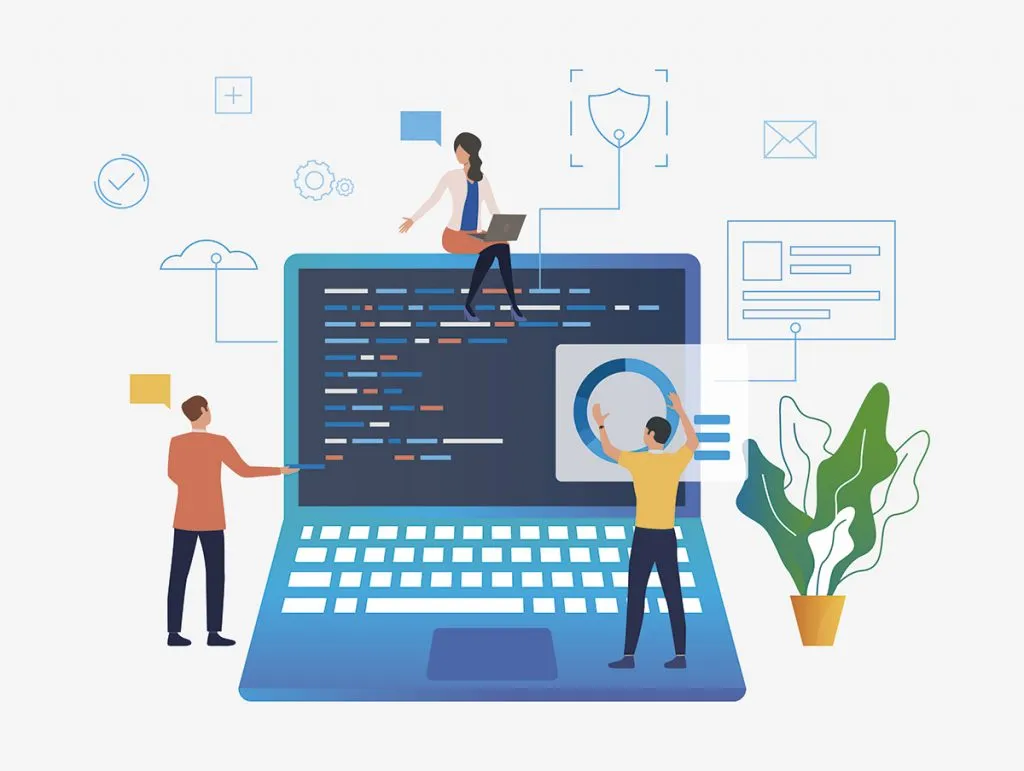What is the role of the IT department
Blog: AuraQuantic Blog
When we talk about low-code or zero-code solutions, there is a concern about the role of the IT department in an organization where the implementation and development of software solutions falls on people who are not trained on software engineering.
To resolve this concern we are going to explore the types of IT solutions which are generated in companies, who generates them and how the organization’s IT department participates in these solutions. We will also see the extent to which the use of low-code application development platforms complements the IT department.
Types of IT solutions and who generates them
in organizations of a certain size the creation of applications is usually divided into three categories depending on who builds the application:
Solutions built by the IT department.
This category includes all the business solutions that belong to the central core of the organization, from where the main part of the business is managed.
Solutions built by IT personnel in different departments.
In some organizations, each department has IT technicians for different functions. It is these technicians who sometimes create solutions for the department. These solutions can become part of the central core of organization or remain in that department throughout their life cycle.
Solutions built for own or team use.
Some workers may have the ability to create more or less complex applications to solve day-to-day problems. These solutions are often used by individual workers or by teams within the organization.

How low-code platforms coordinate with the IT department.
The categorization described above raises the question: Where do low-code platforms fit in?
Low-code platforms are usually oriented to what is called a“Citizen Developer”, which is an end user who creates new business applications for consumption by himself or others. With this definition we could be led to understand that low-code platforms are the exclusive territory of solutions generated for own or team use. However, this type of platform enables end users to build departmental, business and even public applications.
It is for this reason that the use of this type of platform for application development can, and should, incorporate development environments and execution times approved by the IT department.
In addition, for the IT department, this type of platform represents a significant advantage, by allowing them to generate applications demanded by one or more departments or end users in an agile, dynamic way, with a significant reduction in costs, while improving productivity and the user experience.
Currently, low-code platforms are used in all the above categories, by end users that we call “Citizen Developers” or the IT technicians themselves, and always with the participation of the IT team for approval of the platform to be used and verification of the final product.
The post What is the role of the IT department appeared first on AuraQuantic.
